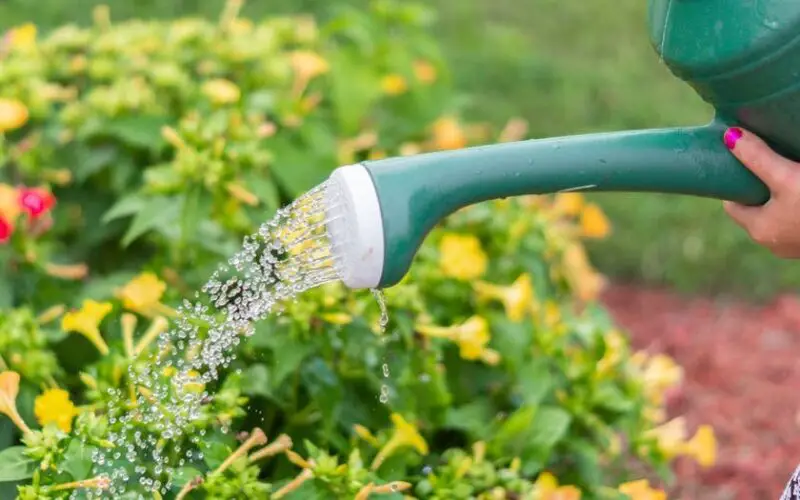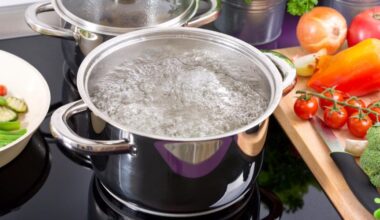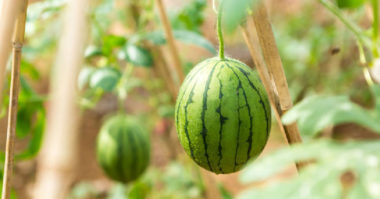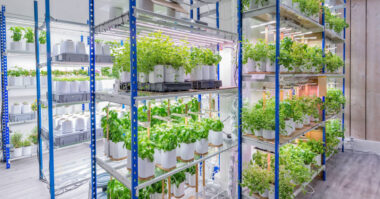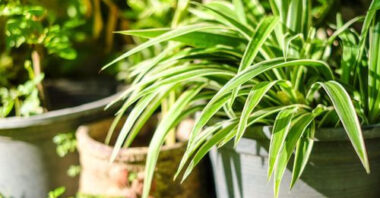Using urine as fertilizer in the garden is an idea based on a very old practice, which is now making its way in a very serious way in the research community and among gardeners concerned with ecology, crop fertilization and sustainable sanitation systems.
Contents
Can urine kill plants?
Urine is a good nitrogen fertilizer, it is proven, it is very unlikely to kill your plants just by urinating on it. As with humans, excess salt is harmful to the soil and plants. If you want to use your urine in the garden, your salt intake (which ends up in your urine) should be moderate.
A healthy person produces healthy urine. On the other hand, it is not advisable to use urine when taking medical treatment. However, any residues of medication or hormones that urine may contain can be destroyed during a 4-week storage period.
It is however strongly recommended to dilute the urine with water before using it in your garden.
Why use urine in the garden?
Fresh urine from a healthy person is sterile and therefore non-toxic. In general, it improves soil structure and plant health.
It is composed of water and minerals that are easily assimilated by plants, such as nitrogen (6g/L), which is beneficial for their growth, potassium (2g/L) and phosphorus (1g/L), equivalent to 100 g of commercial organic fertilizer. It also contains magnesium, calcium, sulfur, sodium, chlorine, trace elements… And in addition to being useful for the garden, its recycling reduces the amount of wastewater to be treated and saves on commercial fertilizers.
Urine feeds the plants, not the soil
Nitrogen, phosphorus and other minerals… there are many inputs that can be directly assimilated by plants. Urea (about 2%) is transformed within a fortnight into ammonia, and then by the action of bacteria into mineral fertilizer. Its action is then equivalent to nitrogenous fertilizers such as ground horn, dried blood.
Phosphorus and sulfur are added to the nitrogen in large quantities, allowing for efficient plant feeding. Use urine as a spring fertilizer for the beginning of the growing season, but stop watering a month before the vegetables are consumed. If you have trouble watering your vegetables, think about your fruit trees by pouring it over the branches.
In figures: For 1 l of urine you have 6g of nitrogen, 1g of phosphorus, 2g of potassium, 0,3g of magnesium.
Salinity is the real problem. To remedy this, dilute the urine to an average of 20%. Limit salt intake in food, which will ultimately have a positive effect on your health. The smell is then pronounced, but not more unpleasant than that of chicken droppings or dried fish bones! The ideal is to use fresh urine to avoid problems of storage and therefore the smell of decomposing proteins. Moreover, the association with organic matter such as compost, which gives a living soil, accelerates the degradation of urine and thus the odor emissions.
How to use urine in the garden?
Attention, to avoid any damage, it is important to use the urine correctly. It is to be diluted or not, in watering at the foot of the plants. The trick: by diluting the urine with water, you avoid overdosing. A good combo is to dilute 1 liter of urine with 10 liters of water. It is also possible to combine one liter of compost with one liter of urine.
The right dose
The right dose is between 1 and 3 L /m2 during the season. 1L of urine/m2 corresponds to the needs of the least greedy plants (lettuce); the most greedy plants (tomatoes in greenhouses) can accept inputs of 4 to 5 L of urine (see the table of urine dosages for the main vegetables consumed, presented in his book).
Combined use with compost
Organic amendments (compost, vermicompost, manure or other organic amendments) aim to improve the microbial life of the soil and thus promote the mineralization of urine and the assimilation of its nutrients by plants.
They also allow to complete the supply of nutrients less or not present in urine, but necessary for the development of plants: potassium (ash), magnesium, calcium, iron and trace elements. We recommend adding 1L of compost (about 500g) per liter of urine.
Preparation and dosage
Urine can be used diluted or undiluted to water the plants. By diluting it in water, overdosing is avoided and its distribution is easier.
In general, 1 liter of urine is diluted in 10 liters of water. All you have to do is urinate in any container and then mix your harvest with water. If you’re handy, you can pee directly into the watering can. The action is a little more tricky for women but not impossible!
Can you store urine ?
To sanitize the urine or to use it later you can store it. Do this in opaque, well-sealed containers that will prevent ammonia loss. It can be stored for up to 6 months.
Precautions to take regarding urine in the garden
Diseases and viruses
The fear of many people when using urine is the transmission of various diseases. But in temperate countries, urine rarely contains pathogens. If they are present, they are mostly found in the faeces. To avoid any risk of contamination, urine should not come into contact with faeces and they should be separated from the start (pee directly on the compost heap or in the watering can).
However, in some regions of the world and particularly in Africa, some organisms can be transmitted through urine: Salmonella typhi/paratyphi, Haematobium schistosomiasis…
In order to reduce the risks, urine must be stored so that the pathogens are destroyed. After one week the risk of transmission decreases by 1000. But the longer this is done, the more effective it is (up to 6 months).
It is also preferable that a month takes place between the last fertilization and the harvest of the vegetables. And water at the foot of the plants, without wetting the fruits that will be consumed.
Pharmaceutical products
It is of course not recommended to use urine when taking a chemical medical treatment. These various products can be transmitted to the plants and then to those who consume them.
Salinity
In some areas where soil salinity is a problem, urine should be used sparingly. It will also bring salt and can lead to crop stress and yield losses. In this case, it should be diluted heavily in water and alternated with water alone.
Summary
Although it may seem like a strange concept at first glance, the use of urine in the garden is not as far-fetched as it seems. As a natural and free fertilizer, with no impact on the environment, the use of urine has many advantages.
